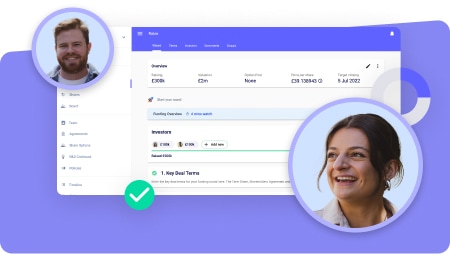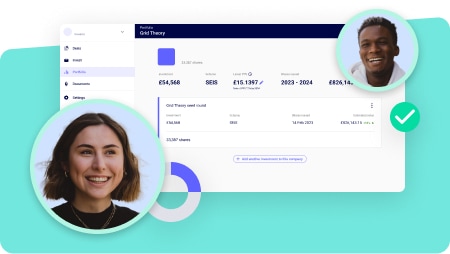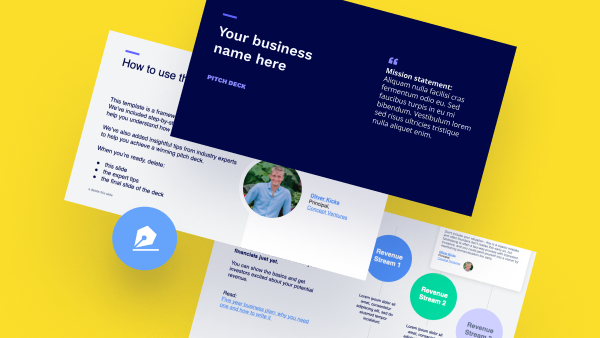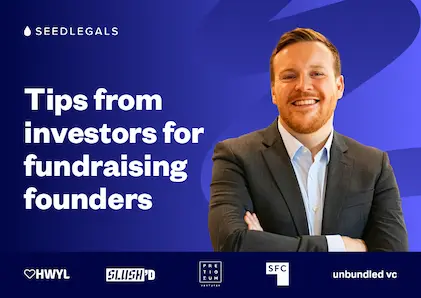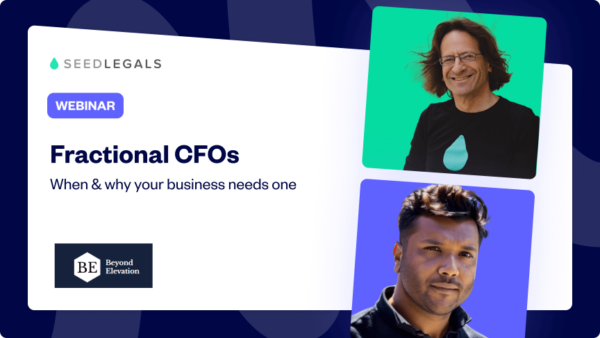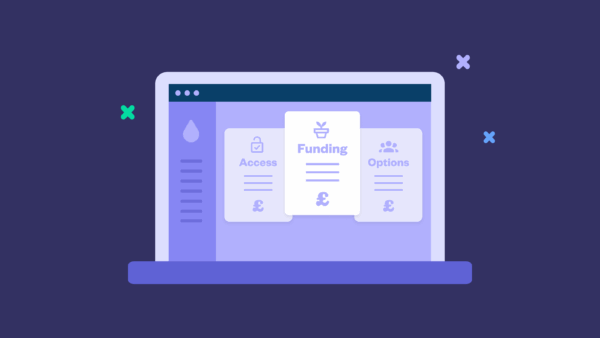Read transcript
Anthony Rose: So Hello, everyone, and welcome to our webinar on fractional CFOs and CFOs in general. Now, this is going to be slightly interactive, and any questions please pop them in the chat. We’re going to start in just a moment and let me see, I’m spotlight spotlight. Okay? Fine. So ask any questions. And what we’re going to do is we’re going to talk for a little while on our set of topics. We’re going to turn to the chat periodically and pick up any questions that you’ve posed, and then at the end we may do a more General Q and A, so you can get on it. We’ll cut that bit off the video so you can ask anything you like and ask any questions. But in the meantime you know anything that you’d like to know about CFOs in general, FDs in general, growing your company in general, we’re here to answer everything all right. So now let’s begin.
So hello, everyone. CFOs, what are they? Do you need one? Is it like a glorified bookkeeper? Is it like a financial director? I don’t know the answers. Well, I sort of do. I’ve learned a bit over recently, but I think many companies start off. The founders do everything as always, and then at some point the founder goes, help! Help! I need help. What do I do next?
And then hires a bookkeeper to help, and then realises that the bookkeeper is dealing with the monthly accounts, and at some point they need help on bigger things. It might be financial planning. It might be I’m doing fundraising. I need help on the models that my investors will look at. I need someone to lead the funding round, and then, as your company grows and you’re creating new products. And here I’m thinking, for example, about SeedLegals. Your product team are thinking of all sorts of clever product ideas. But you’re not sure. Are they just clever ideas, or are they valuable ones? And what’s the market size? Who’s going to find out that? And then, later on, in your company’s growth, you might be thinking of selling the company. And now you have to appeal to buyers. You have to create a new set of financials. You have to show other things that make you of interest to an acquirer. And so at some point you move from the founders, do everything themselves to I need a bit of accounting help to actually, this is about forward strategic planning. So now with that as the intro, let me introduce you to Hayat, who’s going to talk to us about all of these things. He’s got a wealth of experience. So I am going to be learning along with everyone else from him. So Hayat, take it away.
Hayat Amin: Thanks, Anthony. Hey, guys? I think you have sort of summarised it really well and hopefully, today, we can all discuss if we can possibly everyone’s needs. And where you guys are. But hopefully, the 40 min that we spend initially answers all the questions for you. So, but also feel free to stop us. I’m not sure what the rules and regulations are, but I don’t mind being stopped and asked any questions that you might have.
I’ll do a 2 min on who I am and what makes me credible enough to be here with you guys. I’ve been in the B2B tech sector, B2C as well, slightly, for the last 16 odd years. Lots of success, but a lot of failures that not many people know of. So I’ve had 2 exits, one to TripAdvisor and to American Express. You know, to build that company from ground up, raise funds, went through all the strategic as well as technical issues that a CFO might face and then ended up exiting. At the end was also part of 3 other companies that became fastest growing in Europe and the US.
And yeah, probably 9 or so failures as well, which I guess I should mention. I fail at the very top when VCs were pouring down money. But I’ve also failed at the very bottom when it was just an idea. So yeah, these all combined just gives me some sort of a sort of an edge, you might say to then, really figure out what a company, at what stage they’re in, based on what stage they’re in might need. And what I do now is I do fractional CFO myself, but I also have a company that provides fractional executives, finance directors, and CFOs for companies that want to tap into them.
Anthony Rose: All right. Well, thank you for that. So let’s start by saying what is a CFO. And then we’ll get into, you know, and differentiate from other financial roles.
Hayat Amin: So I think that’s obviously a great start. And the term CFO and the role has significantly changed. Even just in the last 5 years. For me it’s always been up until the numbers are prepared, the CFO actually doesn’t have that much involvement. Once the numbers are prepared, once you have your P and L, or once you have your historics in front of you, that’s when the CFO’s real job begins.
That’s one part of it. The other part is, you have a vision as a CEO, as an entrepreneur. A good CFO can quantify that vision and explain it to anyone. I’m thinking in this case could be a VC or a private equity, or an investor to what the ROI is, and you can only do that when you quantify that vision.
And the last bit, which is probably unique and not many CFOs would have this skill set is we are also responsible for let’s say the company is going on a speed date with businesses, investors, clients, as well as potential executives and employees, that you want to hire a CFO’s job is to dress that company up from the inside out, and that’s something that I think really has been a last 5 year change. But but if you have the right person to do that for you, it makes a big difference.
Anthony Rose: Okay. So I like the talk of dressing up the company. We’ll get to that a bit later. So let’s start with perhaps midway into the company, and I like the quantifying the opportunity. So we’re going to put that into 2 buckets and then dive into those. So I see at SeedLegals, many, many pitch decks, and many, many startups. And it’s obvious that founders have found a problem are passionate about and looking to build a solution. And at some point when they’re creating their pitch deck, they need to create a 3 or 5 year business plan.
Those business plans are of dubious benefit, but they’re useful because it forces the founder to at least come up with some numbers, and sometimes they are crazy large. I’ve seen one saying, you know, it’s 800 million opportunity or revenue after 5 years. Dude. No one’s going to believe you. Sometimes they turn out to be way too modest. So at the beginning, they’re forcing you to think through what the opportunities, what’s your cost of goods, what you’re going to make from each sale, and so on, really will show you whether you have a true business or you don’t.
And I was talking to a founder earlier today who’s building a community network. And it sounds great. It’s really going to help people. But I’m not sure there’s actually a business there. So let’s dive into how I’m guessing at the beginning. You’re going to tell us that hiring a CFO, you just way too early what you want to be doing as a founder is thinking like a CFO. And then at some point it will be a part-time fractional CFO. And then at some point it’ll be a full CFO. So let’s go through that journey because I think that will be the maximally helpful for everyone. So if you can think like a CFO before you hire a CFO, you’ve got the win win.
Hayat Amin: Yeah, thinking. But it can be quite tough in my experience to see entrepreneurs juggling so many things where especially the need first really comes when you’re raising, when you’re doing a fundraise. I think it’s important to 3 main things that I would like to highlight that I see regularly that entrepreneurs would benefit having a fractional CFO. And at that moment fractional meaning just getting someone on demand. You’re not paying full time. There’s no need. I can see companies going pre-IPO without a full time CFO, but without having one makes a big difference. So going back to the example of fundraising some of the main things are, can you do? Do you have an exit model? We all hear about financial modelling and forecasting. You can download a template and do it yourself. But do you have an exit model which has key strategy and quantified steps that you need to take as a business that provides an exit at the end of the tunnel at the end of the journey.
Which means which all investors care about most investors and VCs is the ROI. So printing the ROI. The second is, if you’re a software business, a lot of businesses miss the IP of the business in itself. Everyone focuses on revenue, you know, 3 years down, we’re going to make 3 billion error and that’s great, but quantifying that IP is crucial because you need to have other I mean, there’s IP for any business, even a business that just runs of a website. You have data, you are accumulating intelligence and proprietary intelligence. So that’s one more thing.
And the third thing that I see a lot of the reason why people should hire fractional CFO before fundraise is going back to my analogy of dressing up the company, because it just matters so much more on how you addressed versus anything else. And I know as a CFO that’s probably not the right thing for me to say, but it does, and I think a modern CFO will have that edge and knows what a VC is looking for. So that’s where I think the first initial, fractional or on demand, whatever the word you want to use is getting someone in without paying full time, but really getting into tapping into the expertise.
And then down the line, if you’re raised, you also need a fractional CFO, because if you’re raised from a VC they would want to have reporting. You will have different guidelines as to, because you want to secure them for the next funding round. Unfortunately, that never ends for a tech CFO or a tech entrepreneur. But but yeah, so, and then it carries on from there more and more responsibilities, and we’ll discuss more responsibilities for a mature company or an SME. But that’s definitely the initial period where you I have seen most companies thrive, having a fractional CFO.
Anthony Rose: So I love your thinking. So let’s go right back to the beginning of the company, because I think you know, one of the things is, you’re a founder, and should you need a co-founder is solo founder okay? Is 2 founders good? Do you need more than 2? And what I like to think is for successful company with lots of things happening in a given day. I think you need 3 roles, not role number one is the domain hustler, the hustler, the domain experts. This is usually the person whose idea it was Dr. Dialysis, machine mother solve problems. They are the visionary, but they may not be able to build it. So the second role is the person who can help deliver it, which is usually the CTO. And the third role is what I call the Mr. Room is money, which is the person who’s going to make it a going concern investable. Make sure that the you know business is ultimately profitable and isn’t just wasting money, and is picking the right audience segments and things like that, and that aligns roughly with the CFO.
So, of course, now, as a founder, look within and go. Which one or more of these roles am I? And you now want to surround yourself with co-founders to complement your skills. So at SeedLegals, I’m definitely the tech product guy. That’s what I love. I can do. Actually, the financials are not my strong point at all. So my co-founder does that, and you know the domain expert hustler being front and stage. Well, I do some of that, and my co-founder does some of that as well. So the 3 roles we kind of divvy up between the 2 founders. So now the reason I mention all this is as a founder watching this look within and go, which one or more of these am I? And now, if it turns out that the financial side is really you, you may defer needing to outsource that, or finding a co-founder for that for a while, until you’ve got so many other things on your plate, you really need that. If that’s not your strong point, then you may need help on that much sooner, which means either co-founded to complement that, or now outsourcing that, and that might be, you know, as Hayat says, initially on demand.
I’m less of a fan of the fractional word and more of a fan of the on demand word, which is, when you’re coming up to fundraising, you need help with. I think people often think I need help with my pitch deck. But if you talk to the people who do pitch decks, one of the things they tell me is founders come to them thinking I need a bit of help, some design love with my pitch deck.
It turns out they need help with the business plan and turns out they need help with the entire business, because the pitch deck reflects the underlying business, and often the underlying business. When you look at the financials, it’s just not going to work, it needs to be restructured. So any thoughts on those really early stages about maybe as a founder oneself watching this, you know. When do you think you could try to learn to channel what a chief financial officer and businessperson would do, and when you need to reach out for some help.
Hayat Amin: Good question. When do you? Actually, I think what you said initially, it’s quite important for you to realise, who are you out of the hustler and the tech person and the business person. And once you are once you know your shortfall, once you understand that this is the area that you need expertise. I think that’s definitely the first step.
And also realising who you are, I guess you. Let’s say the scenario is, you’re going after a VC investor. When you go after the VCs, they speak a certain language, and that in itself could be a really good motive for you to get some help. Now I’m not saying, get someone one day a week, even get someone to at least help with. Have one call an hour, call a week whatever that works for you, whatever works for you.
And if you can actually back it up, so if I say, I will exit in the next 5 years the whole idea of creating exit models which a lot of our CFOs do, and I love doing is that it really is the blueprint of what will happen if there are 10 different companies that wants to acquire us in 5 years from today. What do we have to do today? Tomorrow, one year, 2 year, 3 year from today? So if you can lay out that. And again, using the same term that I’ve used throughout this webinar. Quantify yourself, quantify the vision and the roadmap.
Then I have seen more, more investors, especially VCs smile like a little child when they hear you painting that picture for them. And that really depends. You understand the market. You understand the product? Can you quantify it so? And you have an exit model to prove that again, these are all completely fiction. But what isn’t right? It’s about you as the entrepreneur to make someone believe. And if you have the numbers to back it, it just makes more sense.
Anthony Rose: I love your thinking. So let’s go right back to the beginning of the company, because I think you know, one of the things is, you’re a founder, and should you need a co-founder is solo founder okay? Is 2 founders good? Do you need more than 2? And what I like to think is for successful company with lots of things happening in a given day.
I think you need 3 roles, not role number one is the domain hustler, the hustler, the domain experts. This is usually the person whose idea it was Dr. Dialysis, machine mother solve problems. They are the visionary, but they may not be able to build it. So the second role is the person who can help deliver it, which is usually the CTO. And the third role is what I call the Mr. Room is money, which is the person who’s going to make it a going concern investable. Make sure that the you know business is ultimately profitable and isn’t just wasting money, and is picking the right audience segments and things like that, and that aligns roughly with the CFO.
So, of course, now, as a founder, look within and go. Which one or more of these roles am I? And you now want to surround yourself with co-founders to complement your skills. So at SeedLegals, I’m definitely the tech product guy. That’s what I love. I can do. Actually, the financials are not my strong point at all. So my co-founder does that, and you know the domain expert hustler being front and stage. Well, I do some of that, and my co-founder does some of that as well.
So now the reason I mention all this is as a founder watching this look within and go, which one or more of these am I? And now, if it turns out that the financial side is really you, you may defer needing to outsource that, or finding a co-founder for that for a while, until you’ve got so many other things on your plate. You really need that. If that’s not your strong point, then you may need help on that much sooner, which means either co-founded to complement that, or now outsourcing that, and that might be, you know, as Hayat says.
Initially on demand, I’m less of a fan of the fractional word and more of a fan of the on demand word, which is, when you’re coming up to fundraising, you need help with. I think people often think I need help with my pitch deck. But if you talk to the people who do pitch decks, one of the things they tell me is founders come to them thinking I need a bit of help, some design love with my pitch deck. It turns out they need help with the business plan and turns out they need help with the entire business, because the pitch deck reflects the underlying business, and often the underlying business. When you look at the financials, it’s just not going to work, it needs to be restructured. So any thoughts on those really early stages about maybe as a founder oneself watching this, you know. When do you think you could try to learn to channel what a chief financial officer and businessperson would do, and when you need to reach out for some help.
Hayat Amin: Good question. When do you? Actually, I think what you said initially, it’s quite important for you to realise, who are you out of the hustler and the tech person and the business person. And once you are once you know your shortfall, once you understand that this is the area that you need expertise. I think that’s definitely the first step.
And also realising who are you, I guess you. Let’s say the scenario is, you’re going after a VC investor when you go after the VCs. They speak a certain language, and that in itself could be a really good motive for you to get some help. Now I’m not saying, get someone one day a week, even get someone to at least help with. Have one call an hour, call a week whatever that works for you, whatever works for you.
And once the VC or if it’s to do with angel investors, that’s slightly more passion driven individuals matter more so are you that eccentric entrepreneur, or you are the hustler. I’m sure you can go get some angels. So it really depends where you are, I always recommend if you have the capital set aside, to invest in an on demand CFO. Just understand that like at Beyond Elevation, for example, the company that I run. We don’t really have a typical XPWC or EY CFO, we just don’t. It doesn’t work.
But we have CFOs that can create an entire funnel strategy for you with B2B marketing, which is unheard of. And the reason is because we are startup to scale up CFOs. It’s a skill that you cannot match with a CFO that has a enterprise or a X for big four background. So so yeah, so, going back to the question that you asked Anthony. I think the number one thing is deciding what it is that you lack and what who are you going after. If it’s fundraising. If you’re going after VCs. They care about ROI over anything else. So can we print that ROI?
One instance, let’s say you’re sitting in a meeting room. And the VC is okay. What’s your 3 year projection? Very easy question. You don’t need to CFO for that. And the answer is 25 million in year 3, and that’s it. Just that answer alone will reduce your chance of getting that investment. But here’s what you can do with a CFO.
Same question, how much do you think you’ll make in year 3? Your answer is same, 25 million. However, the reason we’re going to make 25 million is because our cost of acquisition will come down by 35% each year, and by the end of year 3 it will be 320 pounds. Our customer lifetime value because of the engagement that we are going to be doing in year one with your investment will be much higher by the end of year 3 as well, which brings our customer lifetime value at 15,000 pounds. Our margin will increase, and so will, our EBITDA margin, EBITDA and gross margin will increase. So just by that, you say this is the same scenario you’re making 25 million, but you have painted a picture in a way that the VCs would like.
And it just makes sense even internally. You would just have targets rather than saying, we need to make 25 million, you will have targets of sales. Cycle needs to be at least 2 months. It cannot be above 2, we should have a threshold of 2 months for sales cycles. Customer acquisition costs can never go above 350. Internally it helps so much, but externally investors love that.
Anthony Rose: Okay, well, that is awesome on 2 levels. Number one, I think one of the challenges is, you know, you make up a 5 Year Plan or a 3 Year Plan. And then there’s a complete disconnect between the numbers you put and how you actually going to get there. It’s like you look at the numbers each month and you go. Well, they’re doing this. And the plan said this, and you don’t know what the difference is. So, having the details of that is important. The second thing is obviously just listening to you. If I was an investor I would be so totally more bought in. So now comes, of course, the big question, which is how do you get involved with the CFO at fundraising? So for most companies, this might be the first touch point.
Do you bring your CFO along to an investor meeting that could be brilliant. If they’re a founder it might be a disaster if they just turn out to oh, I rented it for the last for 2 hours month, and then he goes away again. Do they mentor you beforehand, so that you’ve got some of the answers. But then the challenge is, when the investor asks you a level of extra detail, you go stuffed. If I know. Let me get back to you and ask my fractional CFO. So how do you engage so that you’re knowledgeable, not caught out, and you bring the CFO to investor meetings.
Hayat Amin: That’s a great question, and I’m going to use a word that I personally don’t like that much. But I have been a coach for entrepreneurs in the past, just on the financial element. And I, personally, when I work with clients, I definitely it’s more like our sessions that we have becomes the greatest brainstorming session. Where we connect with each other, and there is a exchange of some beautiful energy, something that happens within that call. And the reason that happens is because I tend to not use financial jargon, and that’s the beauty of it. How can I use less buzzwords? And how can I explain how much what my business model is to my grandma? That’s always been the sort of so going back to the question.
If there is a CFO in the meeting, the way I like to do it with the is that we want to empower. I want to empower my CEO. That’s the success that I look forward. If it’s a first time founder or if it’s a 5x founder from before. If my job is to make that person look shiny, grand, and someone who knows everything.
I wouldn’t recommend taking your CFO if he’s not a founder if he or she is not a founder to an investor meeting, especially the first one. But my name’s used in pitch decks, because, having a CFO in your deck increases vibe. You know the weight of the deck, and so on. But yeah, there’s a lot of handholding. There’s a lot of coaching. There’s a lot of, because, you know, most entrepreneurs are smart. So what that is. What that means is that they’re quite emotionally intelligent. So if we speak to them on a human level, everything it’s just downloaded. So I have seen that every 10 out of 10 times. So yeah, coaching available on decks just to make sure that it doesn’t matter if you’re 2 hours or 37 and a half hours a week, a CFO is there with you and and the on demand model means that if you need more, you have more. It’s that one person that’s always there.
Anthony Rose: Okay, all right. And by the way, I think what’s quite interesting, maybe I’m just thinking of myself. But I think it’s an observation more widely is that I think founders need to switch gears and they need help switching gears. What I mean by this from creating something where the goal is to just build something to switching, to selling it. And I think you know, founders get out of bed to solve a problem. And then in the initial stages. It’s all about building a solution.
And they’re actually probably mildly embarrassed about selling it, because they know it’s not quite ready yet. And you know, people give us money. It’s a bit weird. Can’t we just be awesome? But the business will never grow. You can’t have 200 people in the business, and a profound effect on the world. If you don’t have a revenue stream. So at some point you need to switch gears from, we’ve built stuff we now need to sell stuff, and we need to make sure that we can find an audience, that our customer acquisition cost is less than our lifetime value. And all these other things which founders, you know, they may just not have been that role. Or maybe they’re a bit embarrassed, or maybe they feel that they’re not ready to switch gears, and I think it’s the not ready to switch gears which is the important thing.
So, talking with the CFO who’s done this before. May number one help them understand? Are you ready to switch gears and number 2 just changing that mindset? And I have to say at SeedLegals, I went through exactly the same thing in the beginning of SeedLegals. I would literally sit on a beanbag outside our office in the corridor to not disturb the 6 people we had and do customer calls, and at the end of a customer call people like love what you’re doing and not buy anything, and I could never really understand it.
And then we hired our first salesperson. And I thought, You know, she knows nothing about our products. It’s not going to work, and like literally 30 min after a second sales call, the person bought a funding round, and I could not understand how I was not able to do it, and she could. And then I realised for me I was trying to impress people about how clever we are, but probably kind of subconsciously showing all the things we hadn’t yet built, and she knew nothing about the future plans and just showed we’ve got one of these. You can get it right now, and maybe the CFO is the same, which is, instead of the founders being in this mindset, we’re going to be building, building building. It’s like. No, you’ve got something you need to sell it. This is your market opportunity. Do not go after this opportunity, because they’re not going to pay, or there’s no one who it’s too small so to evaluate it with a commercial lens rather than just. I love building stuff, lens, thoughts.
Hayat Amin: So is your question. So let me get the question.
Anthony Rose: I think the question was about changing the mindset of the founder and bringing into mind. It’s not just about building something, because you love building stuff or solving a problem. It has to have a financial model. It has to be targeted to an audience that can buy or want to pay for your service, and you need to think about everything you’re doing as a commercial proposition rather than being embarrassed about it being a commercial proposition, because you are kind of embarrassed that people would pay money for it, because it’s not going to take off as a business. If you can’t do that.
Hayat Amin: Yeah, no. So I am probably the opposite of that. I mean, I think about money the moment I wake up in the morning. And then before, just before I go to bed, and I don’t think it’s a bad thing. But going back to that yes, you’re 100 right. I see that a lot. And and one of the things that when we I do like a complete business model exercise with new clients where I’ll sit down and go through the problems and the solutions as well as core competencies. And and you know your competitors and do a whole deal with them. And as I do that exercise 8 times out of 10, I see entrepreneurs are more of a fanboy or a fangirl about their own product.
And to me, when I see that I try to change. I’m like that. How can we be? How can we get our point across that this solution is going to be the next unicorn, without sounding like a big fan of the product itself, but sounding like a big fan of the problem like the problem, it will only grow.
And so as an investor, I see, okay, it’s not biassed. The problem is a fact. Let’s invest. So I try to be that person. And the way you do that is solving a problem. It means that you need to be monetized for it. So money is super important, and understanding money by unit. Very simple way of putting it is also very important. What I mean by that is, if we do X, we make 500. If we do Y, we make 900, understanding units is key. Because then you, this beautiful product that you’ve created, or this vision that you have, you can create units within that vision that equates to money. Now then, go sell that vision to someone else, and you know you will make money from it. So yes, I think it is something that I see quite often, but I don’t like to say it’s all about the money, because we all know that it isn’t. However, money is a byproduct of something that works. So we have to think about it, and we have to quantify it. And then we have to sell it. So it’s quite important.
Anthony Rose: And I think that’s nicely put. So I think you know, as a founder you probably are quite good, or you have to be quite good quite quickly at learning what your customers want and selling to your customers. But you’re also selling to investors, and the selling. The message for selling to investors is quite different and might be quite alien to you. You’re excitedly explaining why customers want your product, but it’s in a language that the investor isn’t seeing as investable. And everything that I’m hearing from you here is actually quite transformative in showing how number one creating the business. So that’s the internal part in validating the market and things like that, and creating a business model and running the numbers and things like that, and then number 2, I wouldn’t call it dressing it up, but putting it in a way that’s going to be appealing to investors.
And you know, for anyone watching this, I think if you’ve seen many startups, pitch founders, pitch or pitch decks, some decks and some pitches feel it’s like interesting, not exciting. And some crossover into this is amazing. I want in either I want the product or actually I. You know, if I was an investor I’d be in. And as you were describing the business opportunity earlier. It felt exactly like it switched from instead of just about 25 million in year 3 to. And here’s why it’s the process of getting there that gets you excited, and so.
Hayat Amin: I mean one of the worst things that I can tell a founder who’s really passionate about their product, and I have been guilty of probably saying that a lot is, no one cares about what you’re building, and that really hurts people. And it’s okay, because what people care about is, what is the result of what you’re going to build? What happens when this is fully the version MVPs out what happens when you have a when you go to America with a product. What happens if you have a functionality that you add? No one cares about the functionality, but people just care about what effect it has, and I think I think that is a that is a balance.
And I think a CFO is cause. It’s analytical because it’s goals driven and and monetary driven. That angle really helps entrepreneurs balance things out.
Anthony Rose: Okay, alright. So let’s switch from the external one, and we’ll get back to exits in a few minutes and let’s switch to the role of a CFO internally. So you know, once you’ve got some scale, then you’ve got product managers, and you’ve got dev team and your product. Pipeline is now filled your Github or Jira, whatever users got like 200 tickets, and you’re trying to pick what to do next. This is what I call the what to do next problem. And customers need certain things. They’re shouting. This doesn’t work. And we need to do this. And the rules change whatever need to do that, and your sales team have got ideas. And so now, in this mix, you want to pick wisely the most valuable things to do.
And I think one of the ruts that you can get into as a company is, you start picking the low hanging fruit or the short term things, and miss the long term things. So let’s talk about how a CFO wisely chosen and suitably integrated into the company can help the company lift their gaze into the bigger opportunities rather than get stuck in the smaller things and help potentially evaluate different opportunities. You know an example with us? Should I launch in the US or should I launch in 6 European countries? Or should I do a different type of product? How obviously I’ve made the choice on that one already? But hopefully the right choice. But how do you make those choices? So tell us. Let’s brainstorm how the CFO either full-time or part-time, or even the mindset can help you evaluate your product opportunities.
Hayat Amin: The first thing. Let’s start with the mindset, because this might sound very controversial. But I we’re not because I’ve I’ve been quite lucky at a young age. I’ve been a CFO for one of Paris, one of the largest revenue based App coming out of France, and I went in with one simple rule, and that is because of my own personal life. I don’t come from money, but I never liked thinking that it was scarce. I never liked that feeling that it was that I had to. I had to chase. So the weirdly enough in my early twenties. This philosophy that I still follow is that I don’t. I never think about saving cost, and that might sound really weird.
I might go in, even if a company is cash flow 3 months runway. Not much going on. I never think about saving cost, I think about how is this cost? Having an impact to my P and L, just that simple shift of mindset makes me and the CEO work together to make the decisions that will have a growth impact that will have a sort of non capital impact, if there may be such a case. So that’s the mindset that I like to follow.
And in terms of making a decision as if you’re an SME. You know, I think for me, I’m a big scenario guy. I just love playing every single scenario. If if with SeedLegal’s case, I’m 100% sure you’ve made the right decision. America is a beast, and you’ll do really well there. But what I would have done is I needed to really quantify this decision making. So the starting is, how do I know my customer before that? They know that they are a customer. Typical Steve Jobs kind of way of looking at commercialising a product.
Once I know everything about them, I can clearly see that America has a compound annual growth much bigger than any other European country, or even the 6 countries put together. Makes sense. If I get a small piece of that pie, I’m making good bottom line and top line. So what I would do is definitely understand our customers sales. Intelligence is key, and if no one’s doing it, you just if someone asks you, who are you selling to? You should spend at least 1 hour telling them this is who I’m selling to. This is the demographic. This is the characteristic. This is how many employees they have. This is what the CEO does and has for breakfast every morning. We need to know everything.
So start with customer first, then market, and then the suitability of the product in terms of cost and revenue opportunity. So I would just play around with scenarios, play around with intelligent data, mix finance with macro, non-financial data, mix operational data that we already have at SeedLegals and bring other competitors into it, and mix them all together and create these beautiful KPIs that answers the question for you.
Anthony Rose: Well, thank you. So when you then engage with the company, does this mean that your CFO should be spending a lot of time with the product team with the sales team, or they just engaging with the C-suite executives. How down and dirty do you get to understand the business? And how do you look to provide the outcomes of that, you know, planning directly to the team.
Hayat Amin: So I mean, I have. I am a startup kid at heart, and that’s what we make sure that any CFOs in Beyond Elevation is the same, because just because it doesn’t work, I’ve given the example of someone who is an XPWC who’s done age receivables for 8 years and then been partner straight away will not last. One day when it comes to a scale up company that has 15 different things happening. So it is very important that the CFO is treated like a fractional CFO is treated like part of the team, understands the product, understands the market and understands the customer, and also one thing that I always do is when I join is answer the question, how do they do what they do?
And you know you might have the same result, but 2 different companies will have different ways of doing it. The cultural mindset, sorry about that. The cultural mindset, as well as having a completely different outlook on why we do what we do is so cool is so important. So yeah, I think, yeah, be a hole in the wall. Get into every meeting, if you can, as a CFO. And that’s how you build. That’s how you can actually answer the question from a financial perspective.
Anthony Rose: Okay. So when you or your you know colleagues work for the company, what fraction of the time and how severe is the sticker shock moment like, Oh, my God! You’ve engaged us! It’s a disaster zone. I’ve asked for your market analysis. You don’t have that. I’ve asked for your planning. You don’t have that. You fly by the seat of your pants. You change your mind every 2 weeks or 2 days, so is it often a disaster zone. And what are like the 3 things that you think. If you advice for anyone watching this, you know when you actually it’s not about engaging with the CFO. But the 3 biggest mistakes or the lack of you know. Growth of company are coming from these things.
Hayat Amin: Okay, so definitely, 9 times out of 10 times out of 10, it’s a bit of a mess it doesn’t matter if you had a CFO who’s left, or you’re a big company, or SME, or you’ve just starting out. And that’s okay, because the reason they need someone to come in is because they’re struggling with it, or else it won’t make any sense. The 3 things that I’ve seen as quite drastic, and might not be quite conventional, or what you might be expecting what you’re expecting from a CFO. To come out of a CFO. But I think Number one is not really understanding the value of your product.
And I know that sounds sort of, you know, doesn’t make sense, because the entrepreneurs, so you know, crazy about what they’re building in the product. But what is the value really, and that includes understanding what how much money they can make, understanding what the IP can be worth and understanding the employees and the skill set that you need to do something. And that’s definitely for me is a big failure that I have seen that not a failure that’s too strong, but definitely a red flag.
Other things would be not recognizing revenue in line with your costs. If you are doing cash basis accounting, you need to change that straight away because anyone can do plus and minus. But what we have to do with accrual accounting is, realise if we’ve raised an invoice for 5K. We need to find the cost of goods sold, or the cost that took us, or made that sale possible. In the same month in your P and L.
Without that there is no correct margin. So understanding margin and using accruals principle is very important if you’re not doing it already. And the third sign, I would say is, maybe I hope you guys don’t see. I mean again, I’m thinking of trying to think what I can say, because there’s so many. But I think one thing that I see maybe a bit further down the line is an opportunity for an exit goes away.
You can be a big shot. IP driven good percentage of the market SME business or large size business, or even a small tech company. If the reason that I’ve seen the opportunity of an exit goes away, and I have been in those companies myself. Very personally, it hurts is because we didn’t plan the exit. We thought, we will build it, and when the right moment the right people will just come and knock on our doors.
And that is a mistake. So which means that you have to put your internals. You have to get it in order. You have to really understand. If we go to America, for example, for SeedLegals. And if you want an exit in the next 3 years or 5 years, are we getting a portion of the market that the person or the company that might acquire us cares about.
So some form of discipline around making decision based on something that might happen 5 years from today. It is not very. It feels weird to a lot of people. But I’ve seen that happen a lot. So third thing would definitely be waiting, thinking that you build something great because you’re so passionate about it that people will just come.
Anthony Rose: All right. So great points on the first one, not realising the value of your proposition, that seems to be to align roughly with the switching of gears from building it to monetizing it. The accrual problem, I think, is really interesting, because at SeedLegals, as we’ve been moving more and more to subscriptions, it’s actually much more complicated. So if we sell flex and people use flex over N months, then when do you recognize the revenue? And there are actually some really good articles on that. But you know, even for us, and we’ve been around, it was quite a learning experience. That’s definitely something to look at, and then on the exit piece that is super valuable.
So let’s spend a few moments on that, and then we’ll wrap up which and jump to. How much will the CFO cost? But before that on exits. So the first thing about exit is a bit like Fight Club, I think, which is the rule. One of Fight Club is, don’t talk about Fight Club, and I think when you are doing an early stage funding round the question from founders often is, should I put exits in the slide deck? And so let’s spend a moment on thinking about exits and planning on exits, first talking about exits, and I think one mistake is, you know, a good fraction of all the SEIS advance assurance applications are done on SeedLegals, and one mistake companies sometimes make is they start talking too much about exits? We’re going to be doing an exit in 3 years. And the problem is, if HMRC is part of an advance assurance, application or otherwise, that there’s a planned exit.
They see that the investor isn’t taking a risk on investment, because actually, you’re telling them you’re going to give them 5x return on capital in 3 years, and they deny SEIS. The other thing is, of course, you just can’t make any promises because you just don’t know the future. So my take is, don’t put exit material. It’s certainly an early stage pitch decks, and if an investor asks about an exit for sure. Have some plan in mind that is north of yeah. Well, we’re going to think about it. So. And now I’m going to turn to you for the advice on that. So do your planning, but you know, don’t mention it in pitch decks, but do have an answer. So now your thoughts on that.
Hayat Amin: Yeah, I think. By the way, SEIS and EIS if you so my response was for companies who are stacked, who are a medium sized company who’ve already gone past that stage. And you’re raising funds, or you’re attracting investors. Where are you going? You know. As so, in terms of do you share your exit plan on a deck or not? I would say same as what you’ve said. If you’re a startup business, don’t share that, you’re going to exit in 3 years, because that doesn’t sound good. However, if you sit in front of an investor and you do your due diligence. And you understand that these guys care about ROI more than anything else, and if you can actually back it up, so if I say, I will exit in the next 5 years the whole idea of creating exit models which a lot of our CFOs do, and I love doing is that it really is the blueprint of what will happen if there are 10 different companies that wants to acquire us in 5 years from today.
What do we have to do today? Tomorrow, one year, 2 year, 3 year from today? So if you can lay out that. And again, using the same term that I’ve used throughout this webinar. Quantify yourself, quantify the vision and the roadmap. Then I have seen more, more investors, especially VCs smile like a little child when they hear you painting that picture for them. And that really depends. You understand the market. You understand the product? Can you quantify it so? And you have an exit model to prove that again, these are all completely fiction. But what isn’t right? It’s about you as the entrepreneur to make someone believe. And if you have the numbers to back it, it just makes more sense.
Anthony Rose: And then, quite separately. That was the outward facing for the inward facing. I like the discipline of thinking, you know, in a few years. Who might our acquirers be? What was the reason they would acquire us? Would it be? You know you acquire a company for the team, the technology, the traffic, the revenue, you know the most, the strategic significance, and so on. So if you think about who your potential acquirers might be, and then do you want to get under their skin and annoy them to the point that they need to acquire you because you’re eating their market share, or you’re forcing them to cut their pricing, or they want to be in a new territory which you own. So that kind of planning. Also, you know, it could take you sometimes on the wrong path, because you’re chasing something and turns out there’s there’s nothing at the end of that rainbow. And you really should focus on growth with customers. But it’s definitely something that as the business grows, you might start waiting further, unless you just like running your business on a daily basis. So now to wrap up.
I’m sold all right. How much does the CFO cost? And if I can’t afford one, how do I get half, or a third, or a quarter, or whatever fraction of one, and tell us a bit more about what the cost is.Hayat Amin: Yeah, so the cost does depend. I think what’s important is, ask yourself if you are ready to scale, and that scale could be going for a fundraise scale could be doubling 3x 4x your revenue next year scale could be in product wise, and you need funding from a bank anything in that, or more like. Generally, if you’re trying to scale, then only look for a CFO. The reason, I say that is because the whole idea of a fractional CFO is that you’re scaling, but you’re doing it slowly. So you’re not hiring someone full time, which can be very costly.
I personally don’t like working hourly. I charge a small retainer based on what it is who the client is, and I say that I’m available any day, even Saturday and Sunday. My wife doesn’t like that, but I am a Slack guy. I’m always available. But other people within Beyond Elevation might prefer hourly, and a lot of our clients also prefer hourly. So the ranges start from. If I was to say retainer wise ranges start from 1,500 to 15,000, and I want to just clarify something, 15,000 doesn’t mean more hours.
It means that that CFO is doing something completely different. We have CFOs or myself even that every month I am doing fundraise for one client. And now that is a completely different example. So I’m not going to get into that. But yeah, the cost range different. It’s different. Just get in touch with me. Because I think we’re doing a free call for anyone who wants to have a chat, and we can figure something out.
Anthony Rose: Alright, that’s amazing. So this has been very enlightening for me as well. And I hope for everyone watching. So, Hayat, how can people get in touch with you?
Hayat Amin: So great, so good second question, so beyondelevation.com. You should have the that link that’s my agency. Get into my LinkedIn. I think I’ve just put. I don’t know if it’s a good thing or a bad thing, but you can book a meeting with me directly from my LinkedIn as well as I think all our landing page has all my personal calendar in there, because I don’t know why I decided in doing that. I saw Steven Bartlett do that long time ago, and I thought that was a good shout. Bring that personality. And also, yeah, yeah, just have a chat book in a 15-20 min call, and then that would be the the best way to get in from face to face.
Anthony Rose: All right, fantastic. And I must say I love doing webinars with people who can help companies grow not only for things that I can help with them directly on SeedLegals, but things that are separate so and you know the growing, the business. This is essential for that. So thank you so much. Everyone you know which to talk to when thinking about CFOs. Thanks. Everyone have a great day. Thank you.
Hayat Amin: Bye, guys.
Scaling a startup involves numerous financial challenges – from fundraising to future-proofing your business. Managing the money behind your company is more than just accounting… and that’s where a CFO comes in to oversee your financial strategy and operations.
In this webinar, SeedLegals CEO Anthony Rose sits down with Hayat Amin from Beyond Elevation to explore the critical role of CFOs, including when to hire one, how they can drive growth, and why fractional CFOs are an ideal solution for scaling startups. Discover how to think like a CFO and make smarter decisions at every stage of your business.
Key Takeaways
Understanding CFOs
- A CFO’s role starts where accounting ends – turning numbers into strategic decisions.
- They help quantify your vision and make your company investor-ready.
When to hire a CFO
- Early-stage: think like a CFO yourself or hire on-demand support for tasks like fundraising models or financial strategy.
- Growth-stage: a fractional CFO can help scale efficiently without the cost of a full-time hire.
- Later-stage: a full-time CFO may be needed to manage complex operations, investor relations, and exit planning.
The value of a fractional CFO
- Cost-effective expertise: get high-level financial insights without a full-time salary.
- Ideal for fundraising: they can create exit models, refine pitch decks, and ensure you’re speaking the language of investors.
- Strategic planning: a fractional CFO helps dress up your company for investors, forecast growth, and align internal priorities.
Mistakes to avoid
- Not understanding the true value of your product, including IP and market potential.
- Failing to use accrual accounting to align costs and revenues properly.
- Ignoring exit planning—start early to position yourself for strategic acquisitions.
Switching the founder mindset
- Move beyond building the product: focus on monetisation and targeting paying customers.
- Investors care about ROI: paint a clear financial picture, backed by data, to win them over.
How CFOs drive growth
- They evaluate product opportunities and market expansion strategies, helping you prioritise the most profitable paths.
- CFOs integrate with teams to guide decision-making, ensuring alignment with long-term financial goals.
Exit planning
- Think ahead: Identify potential acquirers and align your strategy to appeal to them.
- Don’t overpromise on exits in early-stage pitch decks but be ready to discuss them with investors.
Cost of a fractional CFO
- Typical retainers range from £1,500 to £15,000/month, depending on the level of involvement.
- Flexible models allow startups to scale CFO support as needed.
SeedLegals events
Don't miss a thing
Be the first to hear about all our upcoming events, webinars and meet ups
Sign up

